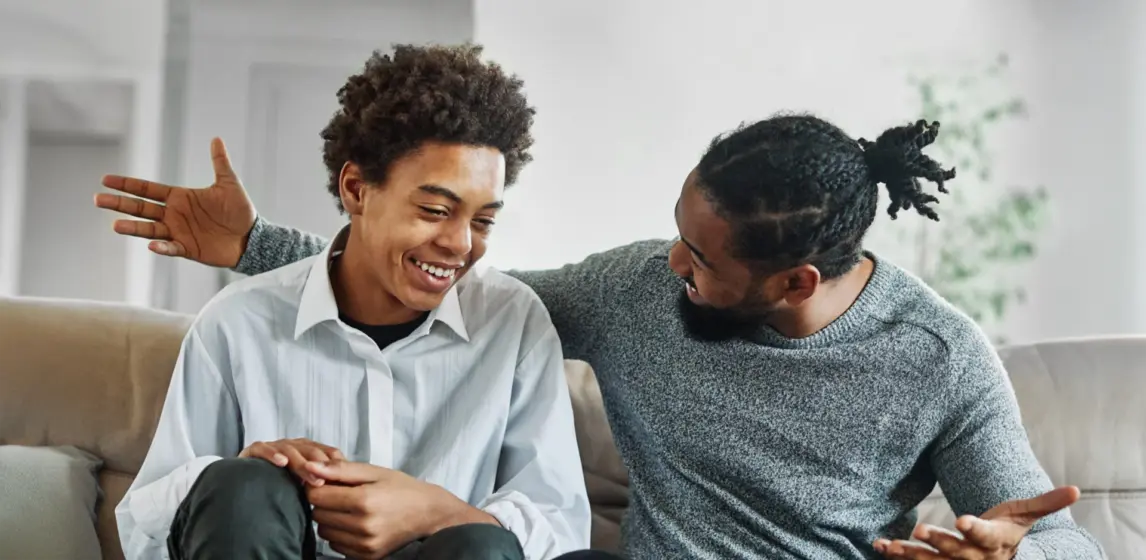Talking about race with teenagers
Introducing a new resource to equip you for empowering conversations
 Ahren Martinez | Oct 22, 2020
Ahren Martinez | Oct 22, 2020
Photo by FG Trade
When I was in high school, I saw my schooling as my job and I took it seriously. I attended a college prep school that was a predominantly White institution. The homework load was tremendous, I played sports and participated in clubs, and I also had an actual job as a restaurant hostess. I was often exhausted. While my parents were empathetic, they often reminded me that all of these things were important in order to get into the college of my choice. Ultimately my hard work would yield success.
Once as a sophomore, I remember my mom and I driving back from a Black scholars’ event on a Saturday. It had been an all-day college fair with workshops, and my mom wanted me to network and talk to everyone imaginable. In the car I exclaimed, “Mom, spending my Saturdays doing this stuff is so exhausting! I do so much homework during the week, I want to have fun on the weekend! Now I’m doing work on the weekends, too?!”
I’ll never forget my mom’s response. She reminded me that as a young Black woman I needed to devote extra work and time to be successful in a world we are born into already at a disadvantage.
Growing up, I was taught that I would have to work ten times harder than a White person in order to get a job interview that the other person may be less qualified for. Being born Black means that we need to work harder to be taken seriously and accepted as fully human in a world that sees us as dumb, lazy, and on welfare. And I learned that the Black woman is the least respected and protected person in the U.S.
I am not alone in my experience; this is the struggle for many Black people and people of color.
As a teenager in the thick of it, I would have benefitted from a youth leader or mentor walking with me and helping me express the frustration, stress, and internalized oppression that I felt on a daily basis. I needed someone who would not “talk at” me but “talk with” me, who would step into my life, to see the way I lived, and who would understand and empathize with my struggle as a young Black woman in a society dominated by White culture. Not only did I need empathy, I needed someone who wanted to empower me and help me find my voice.
Looking back now, I am grateful to my mom for those exhausting weekends of workshops and networking for my success. Thankfully, I could often have good conversations with my parents. But they were still my parents, and as a teenager I didn’t feel I could discuss or process everything with them. I needed someone who wasn’t family who could help me find language for what I was feeling. I needed someone to create space for me and tell me that my teenage experience and story mattered.
Listening to students share their stories and cultural experiences is how we learn from one another. We can’t know what we don’t know and we can’t honor our students’ truly authentic selves without stepping into their lives, neighborhoods, and families in order to get to know them holistically. Their family immigration story, their neighborhood’s history of abandonment or gentrification, their single-parent or mixed family home life, their experiences of racism, their access to healthy food, their prior church experiences—these are just a few things that form our students’ stories, and it is important to understand and interface with these different parts of their lives.
Creating a space to process these experiences builds trust, understanding, and vulnerability—all factors that help teenagers feel safe, understood, and empowered. That’s why we wrote Talking about Race with Teenagers: A Youth Leader’s Guide for Exploring Race, Culture, Immigration, and Power. This guide is a gift of love for any youth leader who cares about young people and is committed to learning more, taking their next step into diversity awareness and antiracism work, and entering into deeper relationship with their young people.

Lead a diverse generation in faithful and caring discussions about race.
This easy-to-use guide is the perfect handbook for any leader who needs a starting point to talk about race, culture, immigration, and power with today’s young people.
More From Us




Sign up for our email today and choose from one of our popular free downloads sent straight to your inbox. Plus, you’ll be the first to know about our sales, offers, and new releases.


